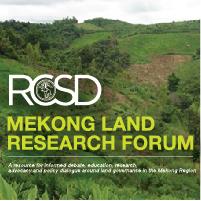Resource information
Transforming conflict is a key component of sustainable forest management. Transformative conflict mediation is an approach to transforming conflict that aims not only to resolve the conflict but also to foster long-term relationships and cooperation. This study explores how application of mediation contributed to conflict transformation. A case study from the village of Teen Tok in Kanchanaburi Province,Thailand, looks at the links and impact of mediation on 1) policies, institutions and governance; 2) livelihoods capacities and cultural and socio-economic aspects; and 3) the natural resource base.This chapter is based on two research projects conducted in 2009 and 2012.The data was collected through interviews, focus group discussions, an expert workshop, and literature review. Results show that third-party mediation played a crucial role in transforming prolonged conflict between national park officials and local people as well as in reconciling conservation and livelihood objectives.The study also found that the commitment and trust of the parties, the participatory nature of the process, and changes in forest-related policy and legislation have been critical factors in the success of the mediation and in management of national parks. Revisiting and improving the laws related to management of protected areas are important to ensure local people’s participation and secure the rights of local communities living within and adjacent to national parks. To improve the capacity of mediators, this study also suggests investment in appropriate capacity-development activities.


